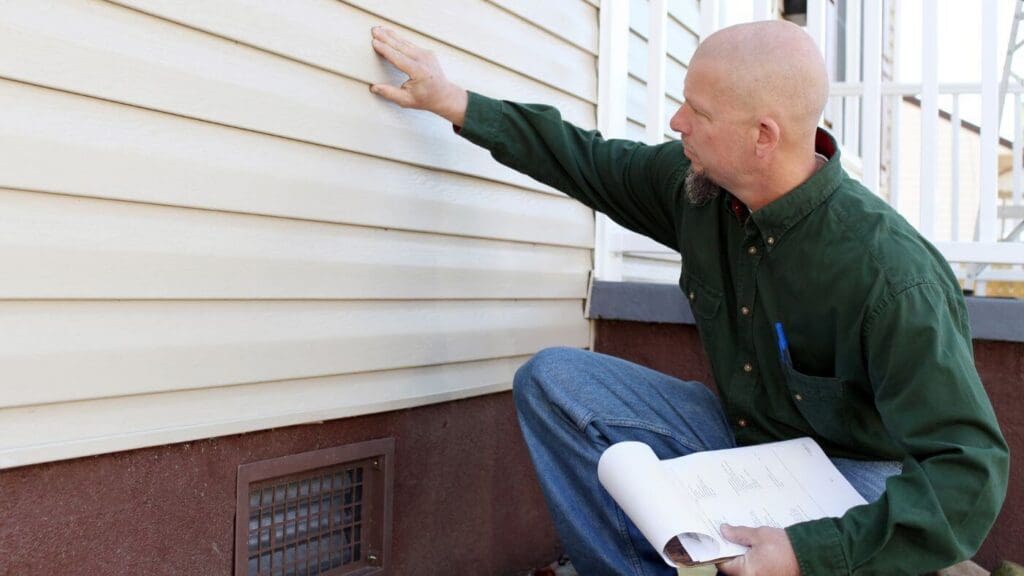Have you ever wondered how a home’s value is determined? Understanding the home appraisal process is crucial whether you’re buying, selling, or refinancing your home. In this comprehensive guide, we’ll explore the importance of home appraisals, delve into the factors influencing property value, and provide tips on how to prepare for a successful home appraisal, ensuring that you achieve the best possible outcome.
Key Takeaways
Understanding the home appraisal process and its legal requirements is essential for a successful outcome.
Factors such as location, neighbourhood characteristics, comparable properties and market trends influence appraised value.
Realtors can provide valuable assistance throughout the entire appraisal process to ensure an accurate valuation of property value.
Understanding Home Appraisals

Home appraisals are essential for determining the value of a property, which impacts everything from sale prices to mortgage viability. An unbiased assessment of the property’s value is conducted by a professional appraiser who considers a variety of factors during the house appraisal process.
Who exactly are these appraisers, and what legal obligations are they bound by? We’ll delve into their roles and the rules that regulate the appraisal process.
The Role of a Professional Appraiser
A professional appraiser is trained and licensed to evaluate a home’s property value based on various factors, providing accurate and reliable results. Their impartial estimate of the fair market value of the property considers aspects such as location, neighbourhood characteristics, and comparable properties.
Upholding a fiduciary responsibility to their clients, appraisers operate in a confidential manner when assessing real estate assets. This confidentiality ensures that the interests of all parties involved in a real estate transaction are protected.
Legal Requirements for Home Appraisal
Appraisals must be conducted by licensed or certified professionals to meet legal requirements and safeguard the interests of all parties involved in a real estate transaction. Appraisers should possess a valid license or certification, knowledge of the local area, and remain impartial throughout the process, regardless of the home appraisal cost.
Working with licensed appraisers guarantees accurate and reliable results, which ultimately help determine the appropriate purchase price for a property.
Factors Influencing Appraised Value
A home’s appraised value, which reflects its home value, is influenced by various factors, such as:
Location
Neighbourhood characteristics
Comparable properties
Prevailing real estate market conditions
These factors can significantly impact the demand for a property, with homes in desirable neighbourhoods commanding higher values than those in less desirable areas.
We’ll now examine how these determinants can influence the appraised value of your home.
Location and Neighborhood Characteristics
Location and neighbourhood characteristics play a significant role in determining a home’s value. Desirable areas possess attractive features for potential buyers, such as excellent schools, low crime rates, and close proximity to amenities.
On the other hand, undesirable areas may have inadequate educational facilities, elevated crime rates, and limited amenities. Therefore, a similar home in a more desirable neighbourhood can be appraised at a higher value than one in a less sought-after location.
Comparable Properties and Recent Sales
Appraisers consider comparable properties and recent sales in the area to ensure an accurate valuation. Recent distress sales in the neighbourhood can potentially reduce a home’s appraisal value.
However, homeowners can attempt to convince the appraiser that their home is worth more, particularly if it is in substantially better condition than surrounding properties.
Real Estate Market Trends
Real estate market trends can impact a home’s appraised value, with appraisers adjusting their valuation accordingly. For example, if a certain property type or amenity becomes more popular, the appraised value may be raised. In such cases, the estimated market value plays a significant role in determining the final valuation.
In a strong buyers’ market, the appraiser’s value may be lower than usual. This is to reflect current market conditions accurately.
The Appraisal Process: Step by Step

The appraisal process involves several key steps, including property inspection, research and analysis, and the creation of an appraisal report with the final valuation. This process helps to ensure that an unbiased and accurate assessment of the property’s value is obtained.
We’ll now delve into more specifics of each phase.
Property Inspection
Property inspection is a crucial step in the appraisal process. It includes a thorough visual assessment of the home’s interior and exterior, as well as its amenities and features. During the inspection, the appraiser will examine the home extensively, from the exterior roof shingles to the interior piping.
They may also uncover issues that the seller may not have been aware of, such as a room that lacks the required permit.
Research and Analysis

After the property inspection, appraisers conduct research and analysis to determine the home’s value. This includes examining comparable properties, market trends, and other relevant factors.
A meticulous examination and analysis of these variables enable appraisers to ascertain a precise property valuation.
Appraisal Report and Final Valuation
The appraisal report contains a detailed description of the property, its value, and the factors considered during the appraisal process. This report is an essential tool for all parties involved in a real estate transaction, as it provides a comprehensive overview of the property’s value and helps to determine the appropriate purchase price or borrowing amount.
It is important to note that the appraisal report is not a guarantee of the property.
Home Appraisal Costs and Timeframes

Home appraisal costs and timeframes can vary depending on several factors, such as property size, location, and complexity. Gaining a grasp of these elements is necessary for budgeting appropriately and facilitating a seamless appraisal process.
We’ll delve deeper into the specifics of cost and timeframe elements.
Cost Factors
The cost of a home appraisal typically ranges from $300 to $700, depending on factors such as the size of the property, its location, and overall condition.
An understanding of these cost elements allows for appropriate budgeting for the appraisal process, preventing unexpected expenses.
Timeframe Factors
The timeframe for a home appraisal can be affected by factors such as the complexity of the property, the appraiser’s workload, and the availability of necessary information.
Appraisals typically take 7-10 days to complete, so be prepared to accommodate this timeline in your home-buying or selling process.
Preparing for a Home Appraisal

Preparation is key for a home appraisal to guarantee the optimal valuation of your property. By addressing home maintenance and repairs, as well as enhancing curb appeal and presentation, you can make a positive impression on the appraiser and improve your chances of obtaining a favourable appraisal.
We’ll now delve deeper into these preparation strategies.
Home Maintenance and Repairs
Addressing any necessary maintenance and repairs before the appraisal is essential to ensure the best possible valuation. This might include fixing broken windows, repairing leaky pipes, and replacing worn-out appliances.
Homeowners can ensure that their property is in top condition for the appraisal by addressing maintenance issues and performing required repairs, which could potentially elevate its value.
Curb Appeal and Presentation
Curb appeal and presentation can greatly impact a home’s appraised value, so it’s crucial to ensure that your property is clean and well-maintained. Enhancing the curb appeal of your home might involve regular lawn mowing, trimming of shrubs and trees, and removal of any debris or clutter from the yard.
Additionally, introducing landscaping elements such as flower beds, trees, and shrubs can improve the overall appearance of your property.
Navigating Low Appraisals and Disputes
Low appraisals can be a source of stress and frustration for both home buyers and sellers. Understanding the reasons for a low appraisal and seeking dispute resolution or second opinions if necessary, can help you navigate these challenging situations and achieve a favorable outcome.
We’ll now examine the measures you can take should you face a low appraisal or dispute.
Understanding Low Home Appraisal
Low appraisals can result from various factors, such as market changes, the condition of the home, or appraisal errors. A low appraisal can impact the sale or mortgage refinancing process, potentially leading to renegotiation or other measures to move forward with the transaction.
Understanding the causes of a low appraisal equips you to take appropriate action to resolve the issue and obtain a just valuation.
Dispute Resolution and Second Opinions on Your Home Appraisal
If you believe the appraised value of your home is inaccurate or biased, seeking dispute resolution or a second opinion can help address any inaccuracies and potentially obtain a revised valuation. Dispute resolution typically involves reviewing the appraisal report, engaging in dialogue with the appraiser, and submitting additional evidence if necessary.
Second opinions can provide an unbiased assessment of your property’s value, ensuring that you receive a fair appraisal.
Getting Help From a Realtor for Your Home Appraisal

Realtors can provide valuable assistance throughout the appraisal process, including:
Pre-appraisal consultation
Market analysis
Pricing Guidance
Property preparation tips
Negotiation support
Post-appraisal support
Their expertise and knowledge of the local real estate market can help you navigate the complexities of the appraisal process and ensure a smooth and successful experience.
We’ll now examine the various ways in which a realtor can be of assistance during the appraisal process.
Pre-Appraisal Consultation
A pre-appraisal consultation with a realtor can help you understand the appraisal process and prepare your property for the best possible valuation. Your realtor can provide guidance on home maintenance, repairs, and curb appeal, ensuring that your property is in prime condition for the appraisal.
This consultation also serves as a platform for addressing any queries or concerns you may harbour about the appraisal process.
Preparing Documentation
Realtors can assist you in preparing the necessary documentation and information for the appraisal process. This includes gathering documents such as:
The home’s deed
Title
Mortgage documents
Any recent appraisals
Home inspections
Repair records
Ensuring the availability and organization of all pertinent documentation can aid in facilitating a seamless and efficient appraisal process.
Facilitating the Home Appraisal Process
Realtors can help ensure a smooth and efficient appraisal process by facilitating communication between homeowners and appraisers. Your realtor can act as a liaison, addressing any questions or concerns that may arise during the appraisal and providing guidance on how to showcase your property best.
This support can help expedite the appraisal process and ensure an accurate valuation of your property.

Post Home Appraisal Assistance
Following the appraisal, your realtor can provide post-appraisal assistance to help you navigate any issues or disputes that may arise. This may include helping you understand the appraisal report and final valuation and offering advice on how to address any low appraisals or conflicts that may occur.
With the support of a real estate agent, you can confidently traverse the appraisal process and strive for the most favourable outcome for your property.
Summary
In conclusion, understanding the appraisal process and preparing your property for valuation are crucial steps in buying, selling, or refinancing your home. Whether you’re working with a professional appraiser, addressing home maintenance and repairs, or navigating low appraisals and disputes, having a comprehensive understanding of the process and the support of a knowledgeable realtor can ensure a successful outcome. With this complete guide, you’re now well-equipped to face the challenges of the appraisal process and secure the best possible valuation for your property.
Frequently Asked Questions
How much does a house appraisal cost in Ottawa?
On average, a home appraisal in Ottawa can cost between $300 and $500, depending on factors such as the size, location, and complexity of the property.
What is the difference between a home evaluation and a home appraisal?
The main difference between a home evaluation and an appraisal is that an appraisal is a more thorough and methodical examination of a home’s value, while an evaluation provides a quicker and generally less costly estimate of a property’s market value.
How do I get my house appraised in Ontario?
To get a real estate appraisal completed in Ontario, go to the Order an Appraisal page to request a quote and make sure the appraisals completed by CNA are accepted by your lender.
Who appraises houses in Ontario?
In Ontario, the Appraisal Institute of Canada is responsible for licensing certified real estate appraisers who provide accurate and reliable appraisals for home buying and refinancing.
What is the purpose of a home appraisal?
A home appraisal is an unbiased assessment conducted by a professional appraiser, providing an essential tool for determining sale prices and mortgage viability.



